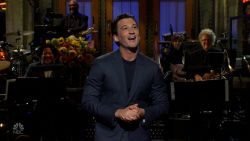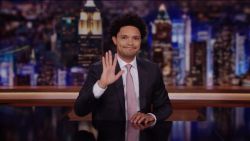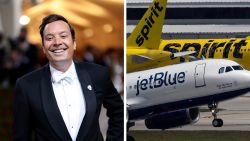William Goldman, the famed screenwriter of classics like “Butch Cassidy and the Sundance Kid” and “All The President’s Men,” once said that “nobody knows anything” in Hollywood. If there was one quote that summed up the entertainment industry in 2020, that would be it.
“This has been the craziest, most unpredictable and momentous year in the history of the film industry,” Paul Dergarabedian, senior media analyst at Comscore (SCOR), told CNN Business. “The pandemic compressed perhaps as much as ten years of change into one year for the film industry.”
Hollywood went through a transformation. As the coronavirus pandemic devastated the industry by shuttering movie theaters, delaying blockbusters and stalling productions worldwide. It also ushered in Hollywood’s streaming future faster than anyone could have anticipated.
Meanwhile, historical norms were thrown out the window as some of the most traditional studios experimented with their streaming futures. Theaters, on the other hand, were left without much to put on their marquees.
But as Tinseltown’s turbulent year comes to a close and the entertainment industry heads into 2021, the only thing that’s certain in Hollywood right now is uncertainty.
So much of what’s happened this year — from Universal releasing “Trolls World Tour” directly to digital to Warner Bros.’ plans to premiere all of its 2021 films on HBO Max — has the potential to alter the very DNA of Hollywood.
But will it?
Shaking Hollywood’s Magic 8-Ball
Jeff Bock, a senior analyst at entertainment research firm Exhibitor Relations, believes that some pandemic-fueled changes will become permanent staples of Hollywood’s business come next year.
One significant example is how long movies play exclusively in theaters before heading to other platforms.
“We’ll never see 60- to 90-day release windows ever again,” he said. “That model was completely antiquated regardless.”
Outside of that, Bock said, he’ll need a Magic 8-Ball: “Will the film industry be the same or different in a year? ‘Outlook Good.’”
Bock added that he also wouldn’t be surprised to see theater chains losing more of their bargaining power in 2021.
“After the pandemic exposed the theater industry’s shaky business, there’s even more leverage for studios now,” he said. “Especially for Warner Bros. and Disney (DIS), which both have pocket aces in their hand with their streaming components.”
Michael Nathanson, a media analyst and founding partner at MoffettNathanson, says 2020 was a “perfect storm” for the film industry. It helped create the “impetus for film distributors to finally accomplish long-hoped for changes.”
He predicts companies like Netflix (NFLX), Apple (AAPL), and Amazon (AMZN) will lean “even more heavily into filmmaking” next year and that more films will go to streaming.
But at the same time, Nathanson thinks audiences will likely return to theaters in 2021.
“This time a year from now, I expect demand to be very strong if there is a vaccine,” he said. “But probably a smaller number of independent theater owners, however.”
Coming soon to a theater near you?
So have theater chains like AMC (AMC), Regal and Cinemark (CNK) reached their last act — or is there enough room in consumers’ wallets for movie tickets and streaming subscription fees?
It’s still unclear, experts say, but we’ll likely have a better idea next year.
Three of the biggest films that were supposed to come out in 2020 — “No Time to Die,” “Black Widow,” and “F9” — will be some of the first films to hit theaters in 2021 when they open in mid-April, early May and Memorial Day weekend.
The box office returns for these films will say a lot about what the future of the film industry will look like, and if that future includes watching movies outside of your living room.
Sure, Warner Bros. releasing all of its 2021 films on HBO Max simultaneously with theaters and Disney going all in on streaming is a troubling sign for the already troubled theater industry.
But it’s not necessarily the end of moviegoing as we know it either. At least not yet.
Dergarabedian, the senior media analyst from Comscore, believes 2020 was “the greatest stress test” that the film industry has ever faced, but he still sees bright spots.
For example, even when many theaters were closed, people still found a way to see movies on the big screen. They just did so from the confines of their cars.
“The popularity of drive-ins this year became a symbol of the human need to see movies in a communal environment, outside of the home on the bigger-than-life canvas of the movie theater screen,” Dergarabedian said. “Even with an unlimited number of options for content on the small screen, people still sought out that singular big-screen experience. That makes me hopeful for 2021.”


























